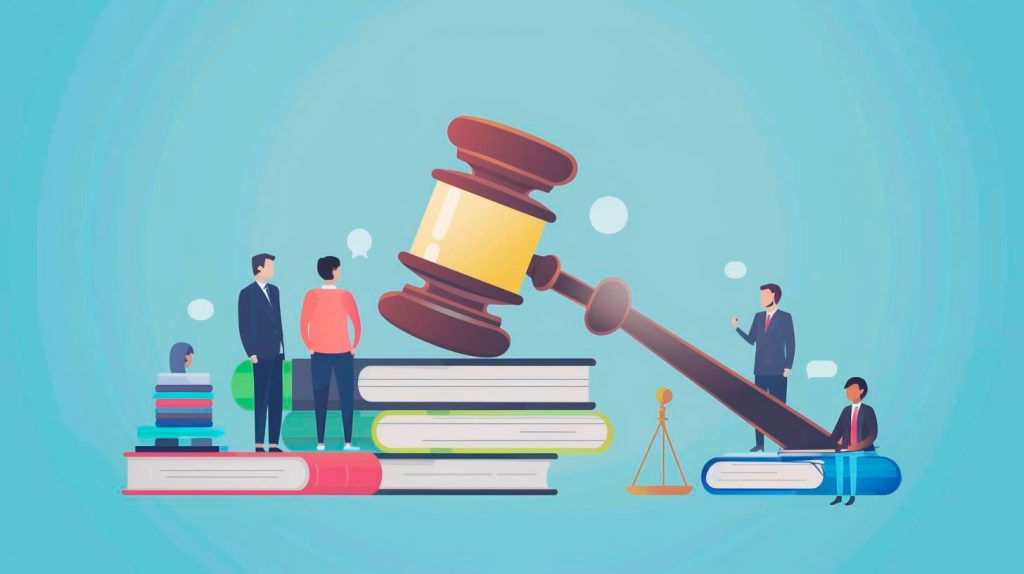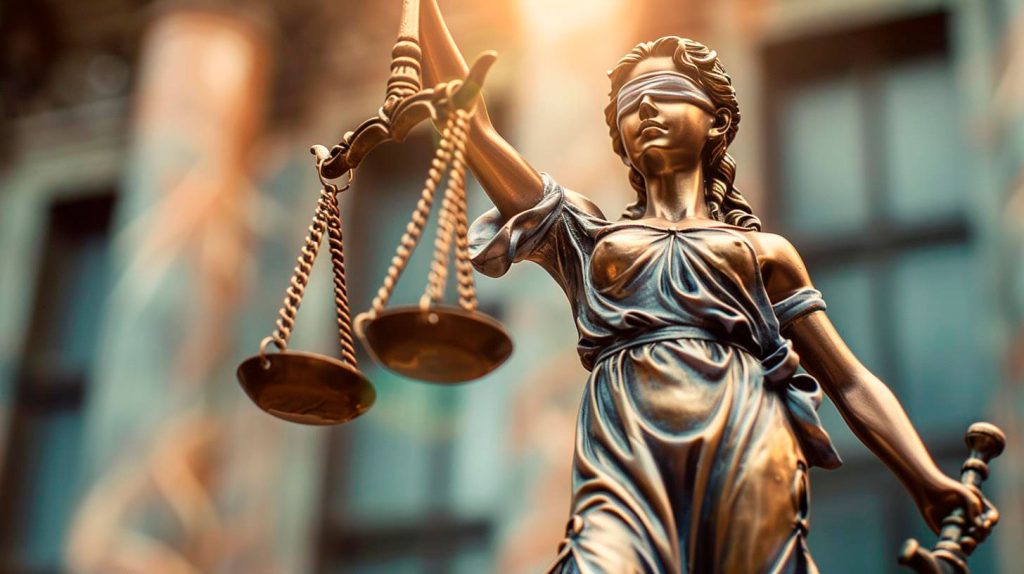
Strategies for Managing Legal Disputes to Minimize Credit Damage
Know your rights and obligations
One of the first steps in managing a legal dispute is to fully understand your rights and obligations under the law. This will help you make informed decisions throughout the legal process and avoid any unnecessary risks that could harm your credit score. It is important to consult with a qualified attorney who specializes in the area of law relevant to your dispute, as they can provide valuable guidance and support.
Communicate effectively
Effective communication is key in any legal dispute. Make sure to clearly communicate with all parties involved, including your attorney, the opposing party, and any relevant third parties. Keeping open lines of communication can help prevent misunderstandings and potentially resolve the dispute more quickly, which can ultimately minimize the impact on your credit.
Consider alternative dispute resolution
Alternative dispute resolution methods, such as mediation or arbitration, can be a more cost-effective and efficient way to resolve legal disputes compared to traditional litigation. These methods can often lead to faster resolutions, which means less time spent in court and less money spent on legal fees. Ultimately, this can help reduce the impact on your credit score.
Negotiate a settlement
If possible, try to negotiate a settlement with the opposing party outside of court. A settlement agreement can help bring the dispute to a close quickly and avoid the additional costs and time associated with litigation. Additionally, a settlement can often be structured in a way that minimizes any negative impact on your credit score.
Monitor your credit report
Throughout the legal dispute process, it is important to regularly monitor your credit report to ensure that there are no errors or inaccuracies that could further damage your credit score. If you notice any issues, be sure to address them promptly with the credit reporting agencies to prevent any further damage.
Seek professional help
If you are facing a complex legal dispute that has the potential to impact your credit, it is important to seek professional help from a qualified attorney who has experience in managing such situations. An attorney can help advise you on the best strategies for minimizing credit damage and protecting your financial interests throughout the legal process.
Managing legal disputes can be a challenging process, but with the right strategies in place, you can minimize the impact on your credit score and protect your financial well-being. By knowing your rights, communicating effectively, considering alternative dispute resolution methods, negotiating settlements, monitoring your credit report, and seeking professional help when needed, you can navigate legal disputes with confidence and peace of mind.
The Effects of Unresolved Legal Disputes on Your Credit Score
How Legal Disputes Affect Your Credit Score
When you’re involved in a legal dispute, it’s not just the outcome of the case that can impact your credit score. The mere fact that you are involved in a legal case can also have negative consequences. For example, if you are sued for non-payment of a debt, that information can be reported to the credit bureaus, which can lower your credit score. Additionally, if a judgment is entered against you in the case, that judgment will also be reported to the credit bureaus, further damaging your credit.
Even if you ultimately win the case, the legal process can still have a negative impact on your credit score. Legal disputes can be long and drawn out, lasting months or even years. During that time, you may accrue legal fees, court costs, and other expenses that you are unable to pay. If these debts go unpaid, they can be sent to collection agencies, which will report them to the credit bureaus, lowering your credit score.
The Benefits of Resolving Legal Disputes Quickly
Given the potential impact that unresolved legal disputes can have on your credit score, it’s important to resolve these matters as quickly as possible. By resolving a legal dispute swiftly, you can prevent negative information from being reported to the credit bureaus. This can help protect your credit score and ensure that you have access to credit when you need it.
Furthermore, resolving a legal dispute quickly can also help you avoid accumulating additional debt. Legal fees and court costs can quickly add up, and if these debts go unpaid, they can lead to further financial hardship. By resolving the dispute promptly, you can minimize the financial impact and avoid falling into a cycle of debt that can be difficult to break.
Statistics on Legal Disputes and Credit Scores
- According to a study by the Federal Trade Commission, 25% of consumers have errors on their credit reports that could impact their credit score.
- In 2019, the Consumer Financial Protection Bureau received over 440,000 complaints related to credit reporting and credit repair.
- A survey conducted by the National Foundation for Credit Counseling found that 70% of Americans are worried about their credit score.
Legal disputes can have a lasting impact on your credit score if left unresolved. By taking swift action to resolve these matters, you can protect your credit and avoid potentially damaging consequences. If you find yourself involved in a legal dispute, it’s important to seek the guidance of a qualified attorney who can help you navigate the legal process and minimize the impact on your credit score.
Remember, your credit score is a valuable asset that can affect your ability to secure loans, credit cards, and even housing. By addressing legal disputes quickly and effectively, you can safeguard your financial future and ensure that your credit remains in good standing.
Understanding the Relationship Between Legal Disputes and Creditworthiness
In this article, we will explore the relationship between legal disputes and creditworthiness, and why it is crucial for individuals and businesses to understand and manage this relationship effectively.
The Impact of Legal Disputes on Credit Scores
One of the most significant ways in which legal disputes can affect creditworthiness is through the impact on credit scores. When a legal dispute results in a judgment against an individual or company, it can lead to negative information being reported to credit bureaus. This negative information can then lower credit scores, making it more challenging to secure loans, credit cards, and other financial products.
According to a recent study by the American Bar Association, over 20% of individuals involved in legal disputes saw a decrease in their credit scores as a result of the litigation process. This highlights the importance of understanding how legal disputes can impact creditworthiness and taking proactive steps to mitigate any potential damage.
Difficulty in Securing Financial Arrangements
Legal disputes can also make it more challenging for individuals and businesses to secure financial arrangements such as loans and mortgages. Lenders and financial institutions often take legal disputes into account when assessing creditworthiness, as they see it as a potential risk factor that could impact the borrower’s ability to repay the loan.
The same study by the American Bar Association found that individuals and businesses involved in legal disputes were 30% less likely to be approved for loans or credit cards compared to those without any legal issues. This emphasizes the importance of managing legal disputes effectively to avoid any negative impact on financial arrangements.
Protecting Creditworthiness During Legal Disputes
So, what can individuals and businesses do to protect their creditworthiness during legal disputes? One of the most crucial steps is to work with experienced legal professionals who can help navigate the litigation process effectively and minimize any negative consequences.
Additionally, it is essential to stay on top of any legal obligations, such as making timely payments or complying with court orders, to prevent further damage to credit scores. By taking a proactive approach and seeking professional guidance, individuals and businesses can ensure that their creditworthiness remains intact, even in the face of legal challenges.
How to Repair Your Credit After a Legal Dispute Affects Your Ability to Access Credit
In this blog post, we will discuss how you can repair your credit after a legal dispute affects your ability to access credit.
Understanding the Impact of Legal Disputes on Your Credit
Legal disputes can have a negative impact on your credit score, making it difficult to obtain credit cards, loans, or mortgages. When you are involved in a legal dispute, it can result in missed payments, collections, and even bankruptcy, all of which can significantly lower your credit score.
According to a study by the Consumer Financial Protection Bureau, about 20% of consumers who have been involved in a legal dispute experienced a credit score drop of over 100 points. This can make it challenging to access credit and can even lead to higher interest rates on loans and credit cards.
Steps to Repair Your Credit After a Legal Dispute
- Review Your Credit Report: The first step in repairing your credit after a legal dispute is to review your credit report. Check for any inaccuracies or errors that may be negatively impacting your credit score.
- Dispute Errors: If you find any errors on your credit report, you should dispute them with the credit bureaus. This can help improve your credit score and remove any negative information that is inaccurately reported.
- Pay Your Bills on Time: One of the most important factors in determining your credit score is your payment history. Make sure to pay all of your bills on time to improve your credit score over time.
- Reduce Your Debt: Another way to repair your credit after a legal dispute is to reduce your overall debt. This can help improve your credit utilization ratio and show lenders that you are responsible with your finances.
- Consider Credit Repair Services: If you are struggling to repair your credit on your own, you may want to consider hiring a credit repair service. These companies can work with credit bureaus and creditors to remove negative information from your credit report and improve your credit score.
The Benefits of Repairing Your Credit After a Legal Dispute
Repairing your credit after a legal dispute can have several benefits, including:
- Improved Credit Score: By taking steps to repair your credit, you can improve your credit score over time, making it easier to access credit and obtain favorable interest rates.
- Access to Credit: Repairing your credit can help you qualify for credit cards, loans, and mortgages, giving you the financial flexibility you need to achieve your goals.
- Lower Interest Rates: With an improved credit score, you may be able to secure lower interest rates on loans and credit cards, saving you money in the long run.
- Financial Stability: By repairing your credit, you can regain financial stability and peace of mind, knowing that you are on the right track towards a healthy financial future.
Repairing your credit after a legal dispute is essential for regaining your financial stability and accessing credit in the future. By following the steps outlined in this blog post and seeking professional help if needed, you can improve your credit score and take control of your financial future.
Remember, it’s never too late to start repairing your credit and rebuilding your financial health. Take the necessary steps today to repair your credit after a legal dispute and pave the way towards a brighter financial future.













Legal disputes can really complicate things when it comes to accessing credit. If you’re trying to buy a house or car, having a dispute on your record can make lenders think twice about approving you. It’s a major headache!
Legal disputes can be a real headache when it comes to accessing credit. If you’re stuck in a legal battle, lenders might see you as a risky borrower and increase your interest rates or deny your applications altogether. It’s like being stuck in a financial quagmire!
What happens if you’re in the middle of a legal dispute and you need to apply for a loan or credit card? Will the dispute automatically disqualify you or is there a way to work around it?
Legal disputes screwing up your credit is no joke. If you’re trying to buy a car or get a mortgage, having a legal battle on your record can really mess things up. It’s like shooting yourself in the foot.
So, what should someone do if they’re in a legal dispute and it’s affecting their credit? Is there any way to minimize the impact or is it pretty much a lost cause?
Legal disputes can really mess with your credit score, man. Like if you’re fighting with a creditor over a debt, it can drag your credit down and make it harder to get approved for loans and stuff. It’s a total pain in the butt!
I’ve heard that some people end up in legal disputes because of identity theft. If someone steals your identity and racks up debt in your name, it can seriously mess with your credit. Is there any way to prevent that from happening?
So, what’s the deal with legal disputes and credit scores? How much of an impact can a dispute have on your score? Is there any way to prevent it from tanking your credit?
If you’re in a legal dispute and it’s hurting your credit, don’t panic. There are ways to repair the damage and get your credit back on track. It might take some time and effort, but it’s definitely possible to bounce back.
Legal disputes can seriously mess with your credit score. If you’re fighting with a creditor or a landlord, it can show up on your credit report and make it harder to access credit in the future. It’s like digging yourself into a financial hole that’s hard to climb out of.
Legal disputes can really put a damper on your financial future. If you’re trying to build credit or get approved for a loan, having a dispute on your record can make things way harder than they need to be.
I’ve heard that in some cases, creditors can actually place a lien on your property if you’re involved in a legal dispute. Is that true? How does that affect your ability to access credit?
I heard that if you’re in a legal dispute and it shows up on your credit report, it can scare off potential lenders. Is that true? Can someone explain how that works?
I’ve heard that some employers even do credit checks as part of the hiring process. If you have a legal dispute on your record, could that affect your chances of getting a job? How screwed are you really?
Legal disputes can be a real nightmare when it comes to your credit. It’s like being in a bad dream that you can’t wake up from. If you’re facing a legal battle, make sure you’re prepared for the impact on your credit.
Yeah, legal disputes can seriously mess with your ability to access credit. Even if you win the case, the damage to your credit can take years to repair. It’s like a never-ending nightmare.
Don’t underestimate the impact of legal disputes on your credit. If you’re tangled up in a legal battle, it can have long-lasting effects on your credit score and make it harder to get approved for loans and credit cards. It’s like a never-ending cycle of financial headaches!
I’ve heard that some people end up in legal disputes without even realizing it. Like if a creditor sues you and you don’t show up to court, it can mess with your credit big time. Is that true? How do you protect yourself from that happening?
What should you do if you’re in a legal dispute and it’s hurting your credit? Should you try to settle the dispute quickly or is there a different strategy you should take? How do you make sure your credit doesn’t take a hit because of a legal battle?
If you’re facing a legal dispute that’s messing with your credit, don’t just sit back and let it happen. Take proactive steps to protect your credit and minimize the damage. It might not be easy, but it’s definitely worth the effort in the long run.
It’s crazy how legal disputes can mess with your credit. You could be fighting for what’s right, but in the meantime, your credit score is taking a beating. It’s like a double whammy of stress!
If you’re in a legal dispute and it’s affecting your credit, you should definitely seek legal advice. A lawyer can help you navigate the process and minimize the impact on your credit score. Don’t just sit back and let it ruin your financial future!
If you’re in a legal dispute and it’s affecting your credit, you need to take action ASAP. The longer you let it slide, the harder it’ll be to repair the damage. Get on top of it and get some professional help.
Legal disputes can throw a major wrench in your plans to buy a house or car. If you’re tangled up in a legal battle, lenders might see you as a risky bet and deny your credit applications. It’s like being stuck in quicksand!
I swear, legal disputes are like a dark cloud hanging over your financial future. If you’re in a battle with a creditor or a landlord, it can seriously mess with your ability to access credit. It’s like fighting an uphill battle.
I’ve heard that in some cases, legal disputes can actually lead to bankruptcy. How much truth is there to that? Can a dispute really push you into bankruptcy and ruin your credit for good?
Legal disputes can be a huge headache when it comes to your credit. It’s like trying to climb a mountain with a boulder tied to your leg. You’re not going anywhere fast!
So, what’s the best way to protect your credit if you’re in a legal dispute? Should you notify the credit bureaus or is there a different approach you should take? How do you make sure your credit doesn’t take a nosedive because of a legal battle?
Yeah, legal disputes can have a major impact on your ability to access credit. Creditors can see that you’re in a legal battle and they might be hesitant to lend you money. It’s like a scarlet letter on your credit report.